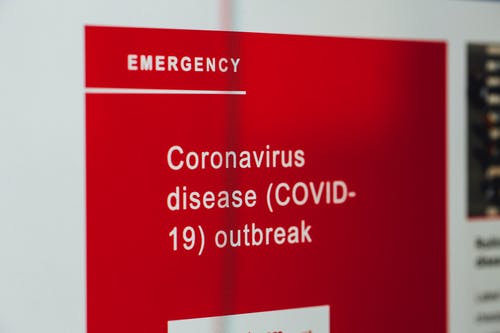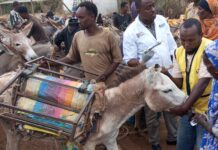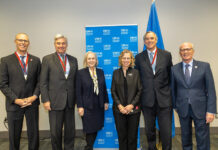By Fred Deya
(Courtesy- Drugs for Neglected Diseases Initiative)
Nairobi, Kenya: As the COVID-19 pandemic continues to wretch havoc on human health across the globe with over 1 million contractual cases as deaths soars passed 50,000 with only over 200,000 patients reported to have fully recovered. Scientists, physicians, funders, and policy makers from over 70 institutions from over 30 countries have assembled to start an International Coalition to combat COVID-19 in resource-vulnerable settings.
The coalition’s main objective was to accelerate desperately needed COVID-19 research in virus vulnerable areas on already-fragile health systems with the greatest health systems and cause the greatest health impact on vulnerable populations.
As just published in The Lancet, the coalition members reasoned that the research collaboration and coordination is urgently needed to support African, Latin American, Eastern European, and Certain Asian countries in order to respond effectively to the fast soaring pandemic situation, hence speed up research adapted to resource-limited settings.
The collaboration was meant to bring together an unprecedented array of health experts, including public-research institutions, ministries of health, academia, not-for-profit research and development organizations, and funders, who are all committed to finding COVID-19 solutions for research-poor experiences.
Accordingly, there is already launched research response to COVID-19, a WHO-led ‘Solidarity’ trial, an unprecedented global effort. However, the finding indicated that out of about 600 cOVID-19 clinical trials registered; only very few trials are planned in resource-poor settings. The meeting further reveals technical expertise and clinical trial capacity to accelerate the research on the disease in the vulnerable countries.

Even though, the research could be hindered by scale of challenge predominantly beyond the scope of any single organization. This way, the collision was set to facilitate a coordinated approach so that all data from all regions can be collected in similar fashion, pooled and shared in real-time.
As attributed by Dr. Soumya Swaminathan, Chief Scientist, WHO the research collaboration will help countries and the WHO to make rapid evidence-based decisions on policies and practices, saying:
“We welcome the launch of this coalition with an advantage of existing multinational and multidisciplinary expertise in running clinical trials in resource poor settings, and will help the WHO in its coordination role in the global response to COVID-19”, recorded Dr. Soumya.
The gathering called upon specific commitments to ensure access and affordability, so that effective new treatments are made available as soon as possible in these countries considered disease vulnerable.
Out of over 70 organizations already in the coalition, other more organizations across the globe are encouraged to follow suit and contribute to the existing capacity.
The COVID-19 pandemic surfaced in Wuhan, China in late 2019, which has spread across the globe for just few months, infecting over 1m humanities, resulting to more than 50,000 causalities with just a parity over 200,000 patients fully recovering globally. The United States of America records the highest COVID-19 cases (over 50,000 patients) as Italy and Spain follows in contractual cases, passed 100,000 confirmed cased each. Italy records the highest deaths associated with the deadly pandemic, soars passed 10,000 casualties.














